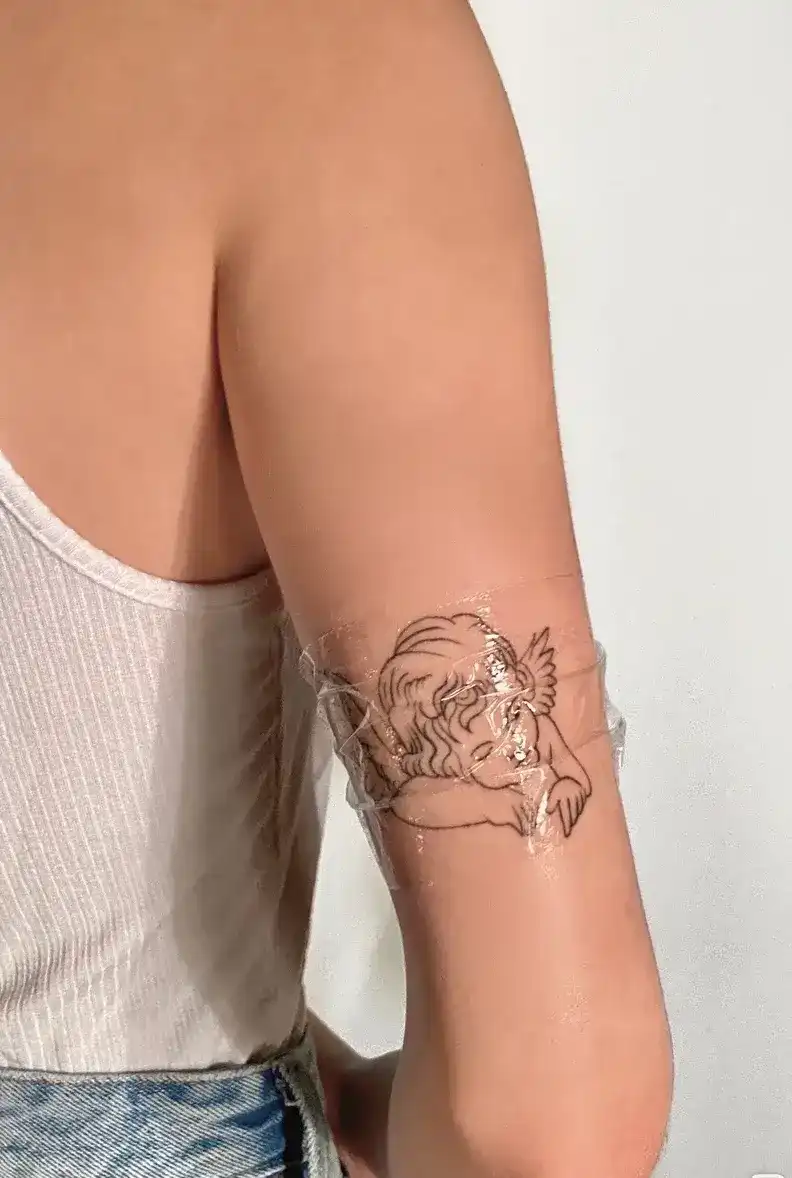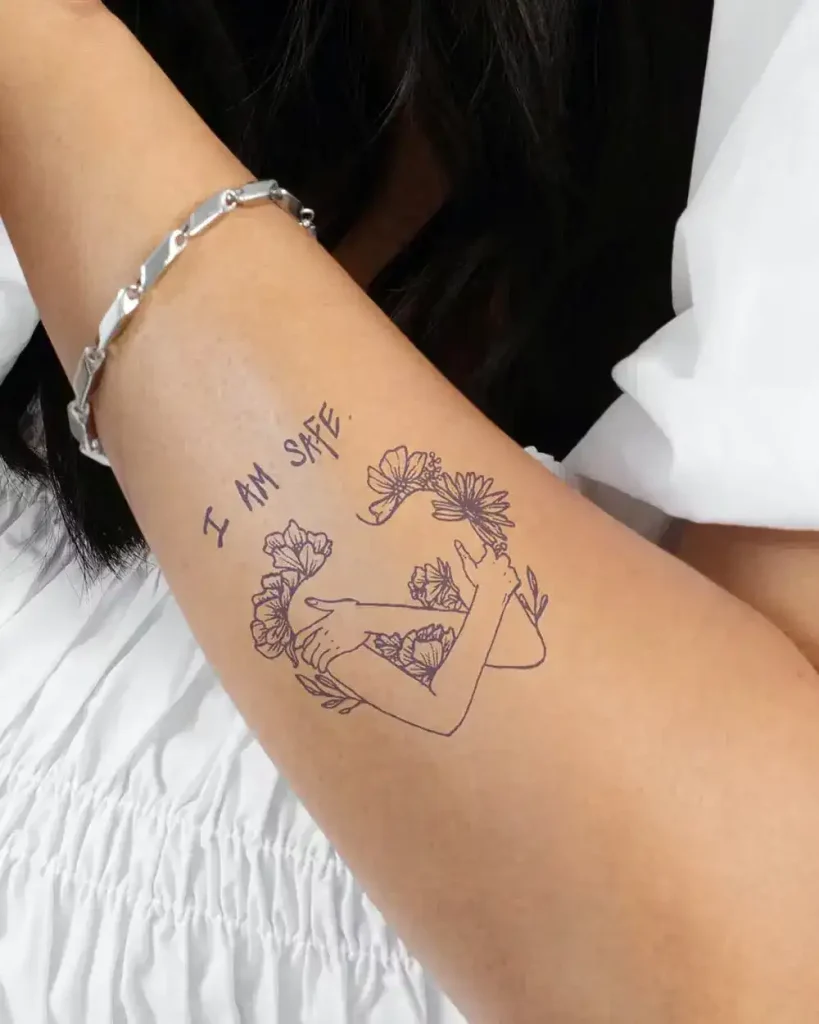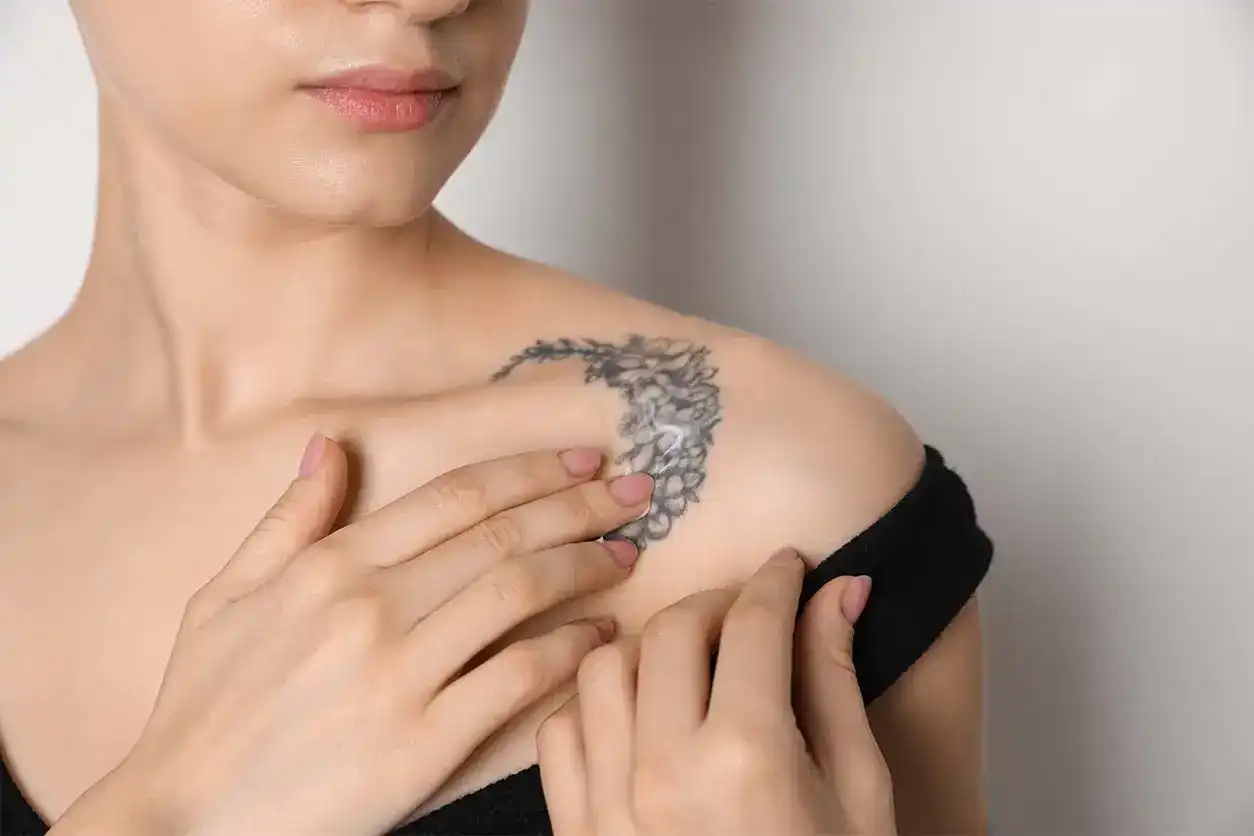Deciding on a tattoo involves significant planning and prolonged contemplation, often spanning months or years.
When considering “can you get a tattoo while on antibiotics”, it’s essential to think twice due to the high risk associated with combining antibiotics with the tattooing process.
As someone with experience in this area, I urge individuals to carefully consider the implications and consult healthcare professionals before proceeding.
This decision should not be made spontaneously or on-a-whim, especially when your health is involved.
Also Read: Can I Get A Tattoo If I Have An STD? The Surprising Answer
Can You Get A Tattoo While On Antibiotics?
When you’re taking antibiotics, the body is already in a heightened state of alert, fighting off an infection or illness.
Introducing a tattoo into this equation—where needles puncture the skin, going deeper to deposit ink made of particles and colored metals such as lead and titanium—complicates the healing process.
This ink, a foreign object to your body and bloodstream, challenges your immune system further.
It’s crucial to understand that while your body endeavors to fight off the infection, adding the task of healing a new wound and assimilating ink can overburden it.
As someone deeply invested in the world of tattoos, I’ve seen firsthand the difference in results between tattoos done in optimal conditions versus those done when the body is under such stress.
The key to a successful tattoo experience lies in responsibility and care, ensuring the skin is in the best possible state to receive ink.
This means waiting until your body is no longer internally combating an illness and is off antibiotics, to allow your immune system to focus solely on healing the tattoo without the added complication of external infection.
Also Read: The Ultimate Guide To Understanding How Long Till A Red Ink Tattoo Fades
Why You Should Avoid Getting A New Tattoo While On Antibiotics?
1. Weakens The Body
Antibiotics are prescribed by your doctor to combat a viral or bacterial infection, putting your body in a fatigued state.
Introducing a new tattoo, which creates a wound, can weaken your system’s ability to fight.
2. Delayed Healing
When your immune system is already under pressure from an infection and the antibiotics prescribed, adding a new tattoo can delay the healing process.
Your body’s capacity to heal the tattoo efficiently is compromised.
3. Risk Of Infection
While on antibiotics, your immune system and protective system are focused on an existing infection, making your body weak.
A fresh wound from a tattoo presents a high chance of a new infection, increasing risks significantly.
4. Physical And Mental Stress
The stress of antibiotics on your body can lead to tension and bodily stress.
Adding the process of getting a tattoo can exacerbate this, causing mental stress.
This combination of delayed healing, new infection, and an already weakened body compounds both physical and mental stress.
Time To Wait Before Getting New Tattoo While On Antibiotics
When contemplating a new tattoo while on antibiotics, it’s crucial to consider the condition of your body. A weakened immune system needs time to recover and heal.
Health professionals typically recommend waiting until your body is no longer in a weakened condition—usually 7 days after your last dose of medication.
If you’re hesitant, always consult with your doctor to ensure your body is healthy enough for the tattooing process.
Also Read: 7 Best Stick And Poke Ink Alternatives
Risks And Precautions
The advice from experts on getting a tattoo while taking antibiotics is clear: wait.
The stress and infection risk to your body, and the potential for a compromised healing process, make it wise to delay.
Tattoos are permanent, and while they can be removed, the process is long, costly, and painful.
For optimal results, it’s best to ensure good health and to be free from antibiotics for at least one week.
Before making any appointment, seek advice from both your doctor and tattoo artist to avoid the high risks associated with spreading infection during the tattooing process.
Also Read: Can Laser Tattoo Removal Cause Nerve Damage

3 Steps To Take Before Getting New Tattoo After Getting Off Antibiotics
1. Take Plenty Of Rest
After stopping antibiotics, your body may still be weak. It’s essential to rest to allow your immune system to recover.
This not only benefits the healing of your new tattoo but also strengthens your body’s ability to fight off infection.
2. Eat Healthy Food
Eating healthy food—rich in fruit, vegetables, and protein—can speed up your recovery after antibiotics.
A strong immune system can quickly benefit the healing of your new tattoo, helping to fight off any potential infection.
3. Consult With Your Doctor
Before getting your new tattoo, consult with your doctor. They can advise if your body has recovered the strength needed post-antibiotics and if it’s ready for a tattoo, ensuring a faster recovery.
Also Read: What Are The Long Term Effects Of Tattooing Your Body
5 Reasons You Can Not Get A New Tattoo
Listed below are the main reasons why you can not get a new tattoo:
1. Medication
Certain medications act as a deterrent for those looking to get inked. Antibiotics, Acne medicine, and blood thinners can prevent the proper healing of a tattoo.
2. Pregnancy
Pregnancy is a critical time when getting a tattoo can harm both the baby and the mother.
It is advisable to wait until the mother is healthier and ready post-pregnancy to ensure safe tattooing without risking bleeding from being pierced by the needle.
3. Breastfeeding
Doctors often recommend waiting between 9 months and a year after giving birth to get a tattoo to avoid contamination of blood and lymph nodes, ensuring the baby is no longer breastfed.
4. Chronic Skin Condition
Individuals with a chronic skin condition, whether it’s acne or psoriasis, face additional challenges.
In some cases, it’s illegal to tattoo someone with active or inactive skin conditions due to the risks involved.
5. Immunocompromised Patients
Immunocompromised patients face a higher risk when considering tattoos.
According to the British Medical Journal, such individuals may experience increased pain, health issues, and are at a higher risk of infectious disease, making the decision to get a tattoo life-threatening due to bleeding and other complications.
By understanding these main reasons, individuals can make informed decisions about getting a new tattoo, especially when considering the implications of existing health conditions and the use of medications like antibiotics.
Also Read: What Ink To Use For Stick And Poke

FAQs About Can You Get A Tattoo While On Antibiotics
1. What If I Get A Tattoo While On Antibiotics?
It’s recommended to consult with your doctor before proceeding and take the proper steps to ensure the recovery of the tattooed area.
2. Can I Get A Tattoo While Breastfeeding?
No, doctors typically recommend waiting until your baby no longer requires breastfeeding to ensure their safety.
3. Can I Get A Tattoo While Taking Doxycycline?
While it’s possible, it’s not recommended. It’s best to wait until you resolve any dental issues before considering a tattoo.
4. How Long Can You Get A Tattoo While On Antibiotics?
Antibiotics can interfere with the healing process of a tattoo as they force out foreign antibodies and tattoo pigment. It’s advised to be off antibiotics for one week before getting a tattoo, but it’s crucial to consult your doctor for personalized advice.
5. Will Antibiotics Ruin A Tattoo?
Getting a tattoo while on antibiotics poses risks as it can interfere with the healing process and increase the risk of contracting additional infections.
6. Can You Get A Tattoo While On Antibiotics Amoxicillin?
Getting a tattoo while on amoxicillin can pose risks to the healing process and increase the risk of contracting additional infections. It’s best to consult with your doctor for personalized advice and guidance.
7. Can You Get A Tattoo While On Antibiotics Flucloxacillin?
Getting a tattoo while taking flucloxacillin can present hazards to the healing process and increase the possibility of acquiring additional infections. It’s recommended to consult with your doctor for personalized advice and guidance.
8. What Happens If You Get A Tattoo While On Antibiotics?
Getting a tattoo while on antibiotics poses a risk due to tiny openings in the skin acting as entry points for germs, bacteria, and viruses. This can delay the healing process and increase the potential risk of infections.
9. How Long Do Antibiotics Stay In Your System?
The duration antibiotics remain in your system varies from hours to days after cessation, influenced by factors such as the type, dosage, and age of the drug.
10. Will Antibiotics Reject Tattoo Ink?
While your body is busy fighting an infection, it may struggle to handle the introduction of tattoo ink, potentially leading to the rejection of the ink by antibiotics.
11. What Antibiotics Are Good For Tattoos?
Utilizing antibiotic ointments like Bacitracin or Neosporin can aid in the healing process post-tattooing. Additionally, adopting a gentle, fragrance-free body lotion regimen can support skin recovery over weeks.
12. Will Antibiotics Help An Infected Tattoo?
Persistent inflammation or other symptoms in an infected tattoo may require doctor-prescribed antibiotic treatment to resolve the infection and prevent complications such as sepsis.
Final Thoughts
In conclusion, while the allure of a new tattoo is undeniable, caution must be exercised when considering it while on antibiotics.
It’s essential to weigh the fun of getting inked against the delay that meds can impose on the healing process.
Consulting with a doctor or tattoo artist to determine the necessary steps ensures that safety remains the top priority.
Therefore, it’s crucial to ask, “can you get a tattoo while on antibiotics?” to make a wise and informed decision.
